Are you considering furthering your education but feeling a bit overwhelmed by the process? You're not alone; many prospective students share similar concerns as they navigate their options. In this article, we'll break down the steps and tips you need to meet with potential schools effectively and confidently. So, grab a cup of coffee and join us as we explore how to make a lasting impression during your student meetings!
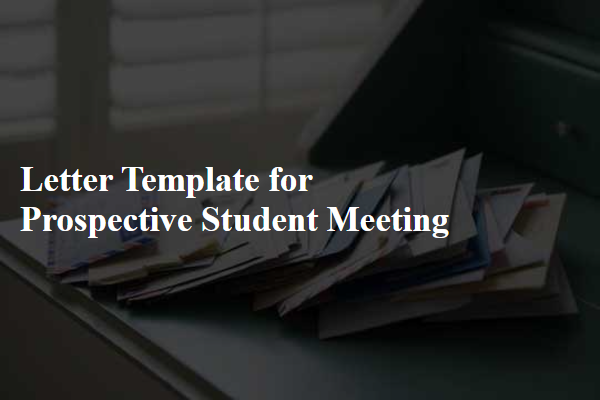
Personalized Greeting
Prospective students often feel overwhelmed when considering their educational options, especially when preparing to meet with an admissions advisor at a university or college. A personalized greeting can ease this anxiety and create a welcoming atmosphere. For instance, addressing the student by name during the introduction can foster a sense of importance and individuality. Furthermore, mentioning the specific program of interest--such as Biology or Computer Science--can demonstrate attention to the student's aspirations and academic goals. A warm, friendly tone can reinforce the institution's commitment to supporting student success and highlight the supportive community that prospective students might find there. A personalized touch, such as inquiring about their hobbies or interests, can also make the conversation feel more engaging and less formal.
Introduction and Purpose
A prospective student meeting provides an opportunity for educational institutions to engage with potential applicants. This interaction is crucial for addressing any questions about the admission process and institutional offerings. The meeting typically aims to discuss academic programs, financial aid options, campus facilities, student life, and career services available at the university. Participants often include admissions representatives and current students who share personal experiences. These discussions can significantly influence a prospective student's decision regarding enrollment at the institution. Each meeting can accommodate various formats, such as one-on-one consultations or larger informational sessions, enhancing the overall recruitment strategy.
Meeting Schedule Details
Meeting details for prospective students usually include essential information that highlights the date, time, location, and agenda. For instance, the meeting might take place on March 15, 2024, at 10:00 AM in the University Hall (a notable building on campus known for its architectural style). Attendees could expect to discuss topics like admissions processes, financial aid options, and campus life, providing insights into the university experience. Prospective students should prepare questions in advance to maximize the benefit of the interactive session.
Key Discussion Topics
Prospective student meetings serve as crucial touchpoints for future learners to gain insights into academic offerings and campus life. Key discussion topics include program specifics, detailing unique courses and faculty expertise, financial aid options, including scholarships and grants, campus resources such as libraries and mentorship programs, student organizations for social engagement, internship opportunities for practical experience, and admission requirements, clarifying deadlines and necessary documentation. Additionally, discussions may encompass campus safety measures, housing options for accommodations, and alumni success stories to inspire confidence in the educational journey. These topics foster an informed and engaging dialogue, ensuring prospective students address all essential aspects of their future studies.
Contact Information and Call to Action
Prospective student meetings can provide invaluable insights into academic opportunities and campus culture at a university. These meetings typically include discussions about program specifics, deadlines, and financial aid options. An effective meeting should also address any questions regarding student life, support services, and internship possibilities. Additional resources, such as a detailed university brochure or access to an online portal, can enhance the prospective student's understanding and facilitate decision-making. Engaging in a follow-up communication, such as an email to express interest or schedule a campus visit, can establish a stronger connection and demonstrate commitment to the enrollment process.
Letter Template For Prospective Student Meeting Samples
Letter template of orientation session invitation for potential students
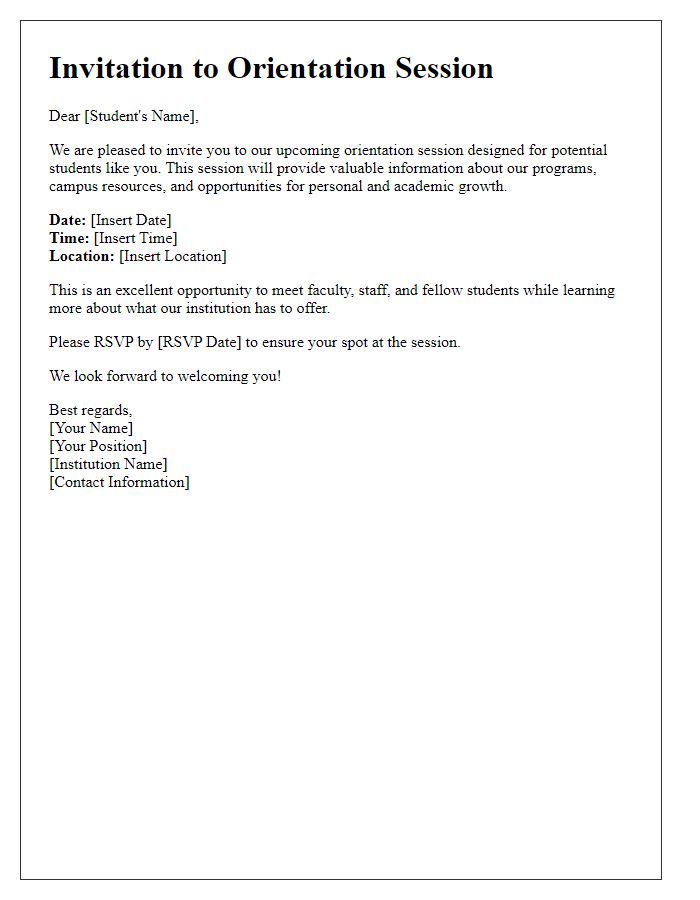

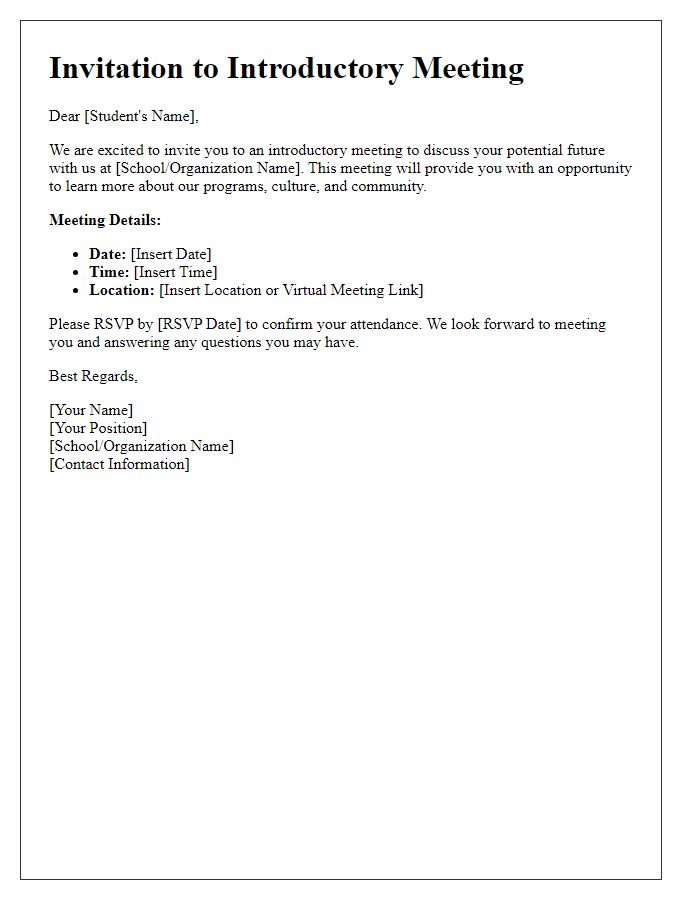
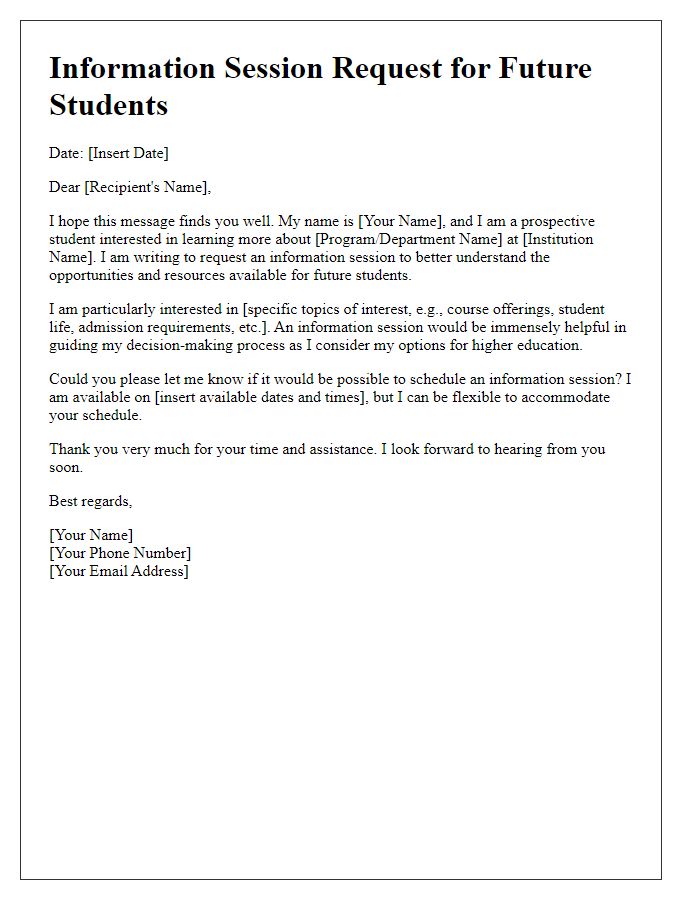
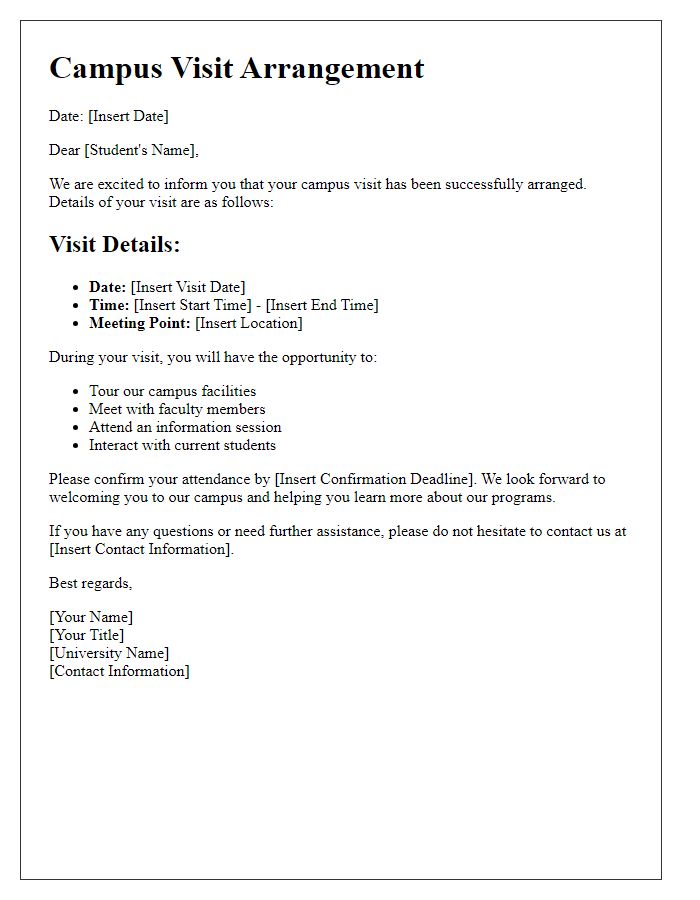
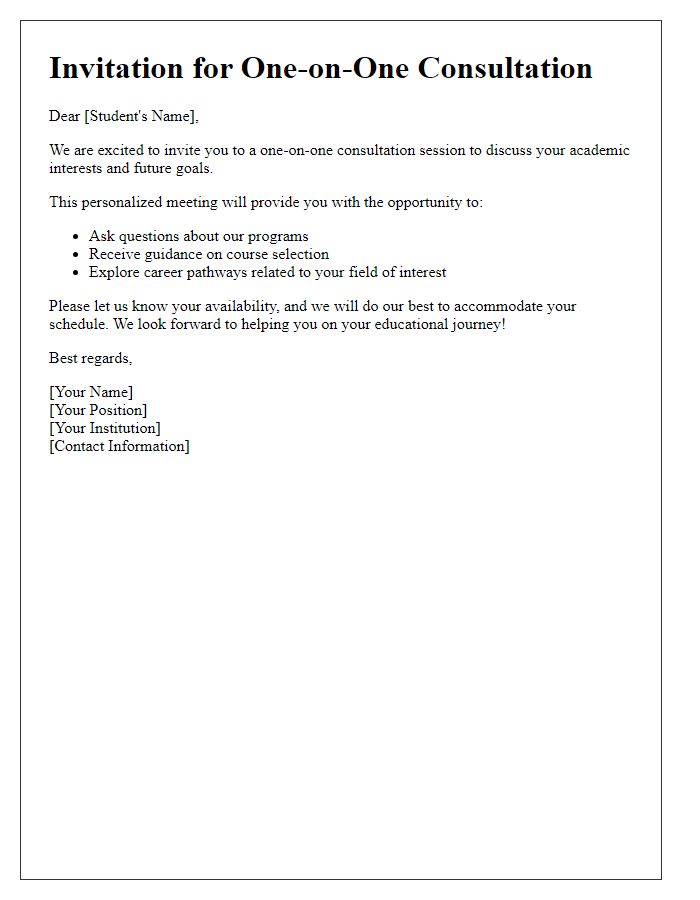
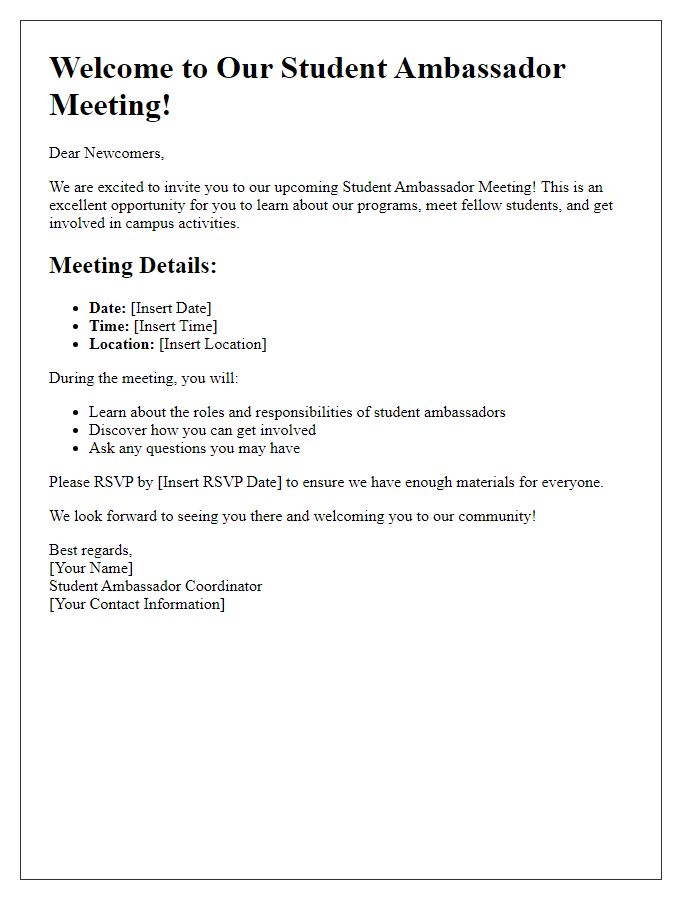
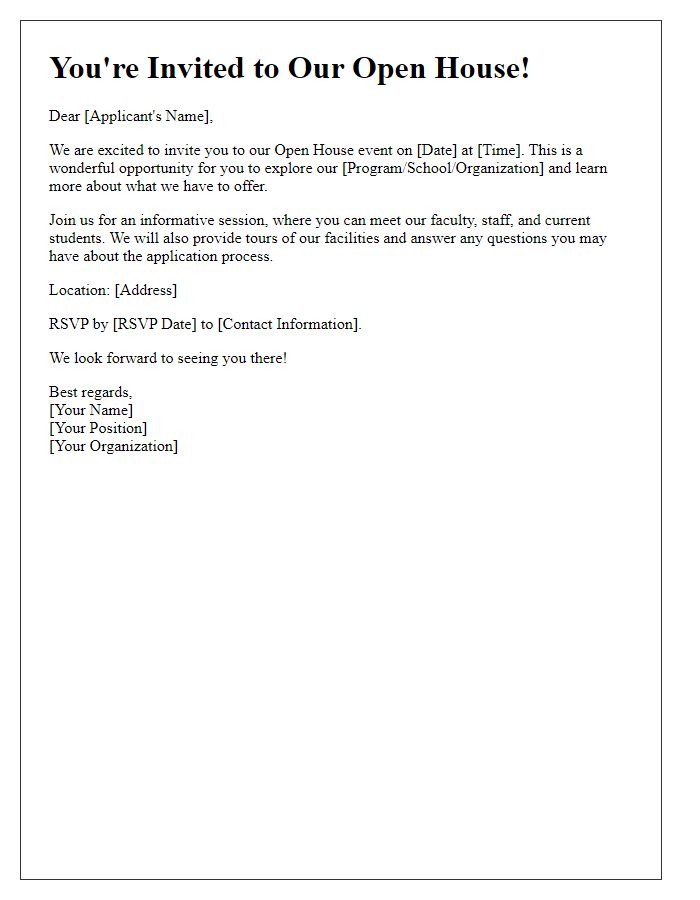
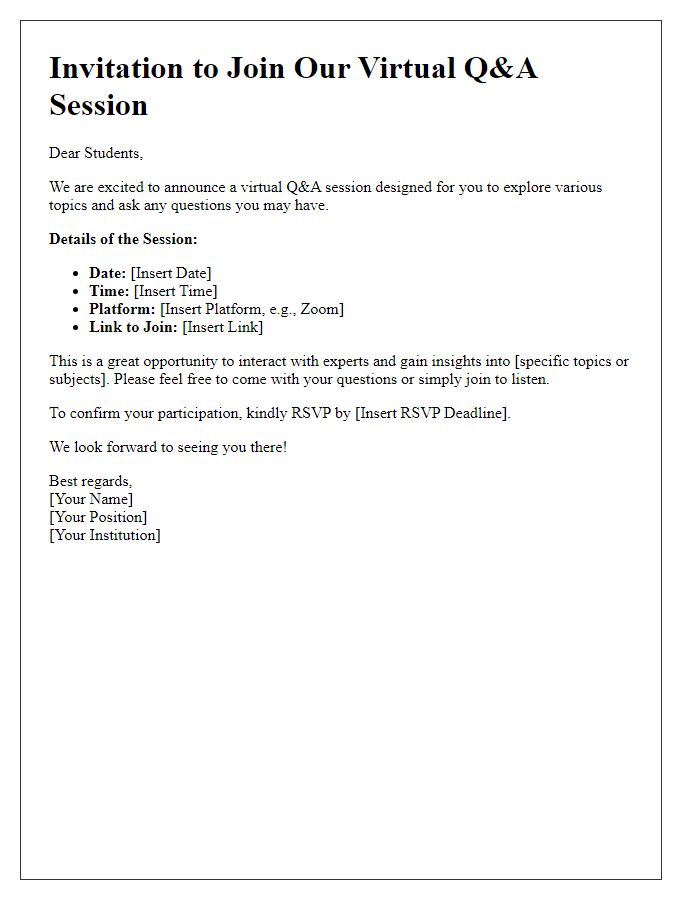
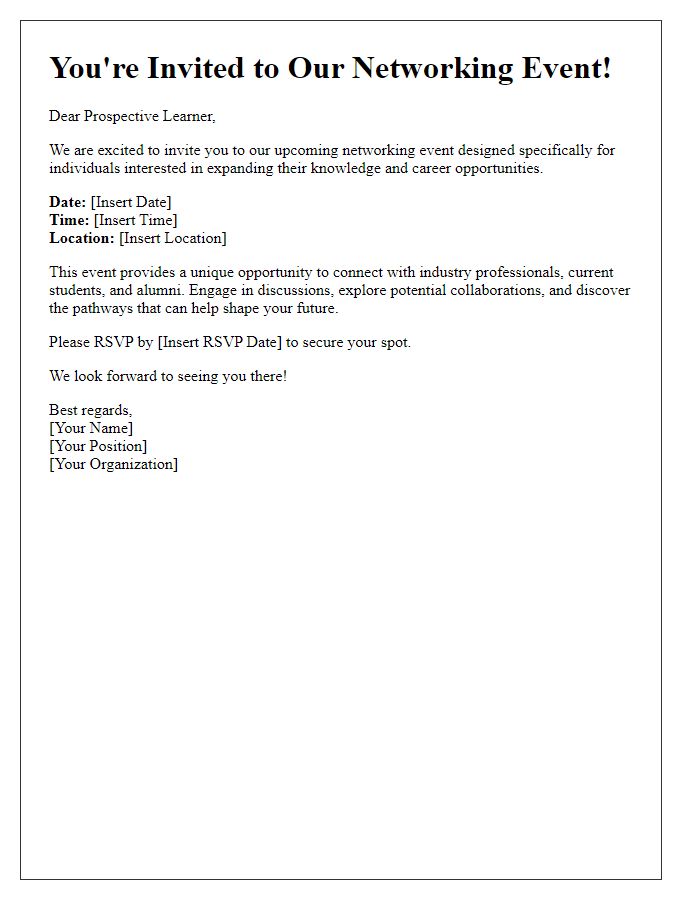
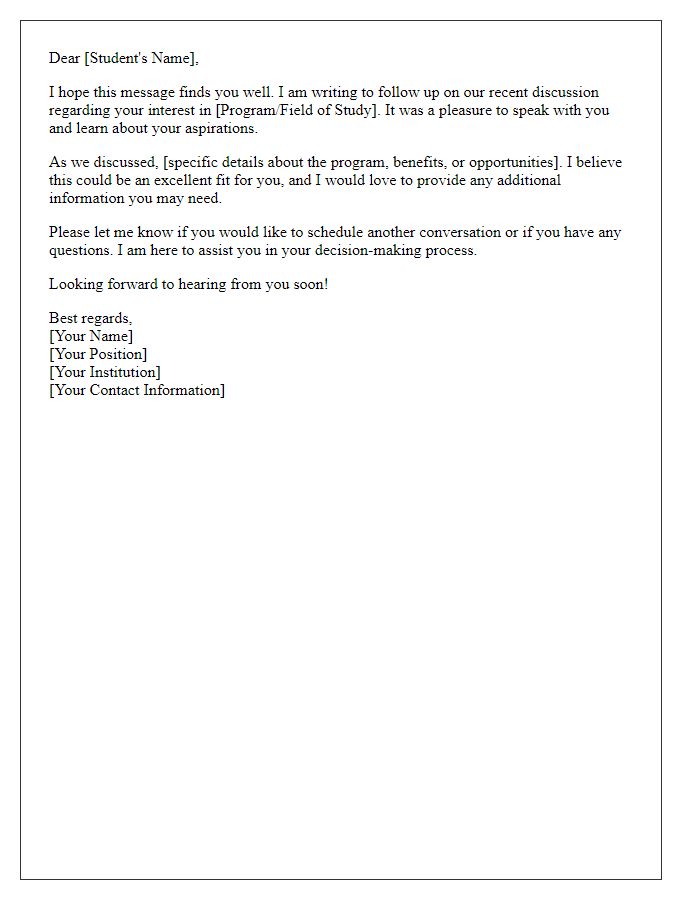


Comments